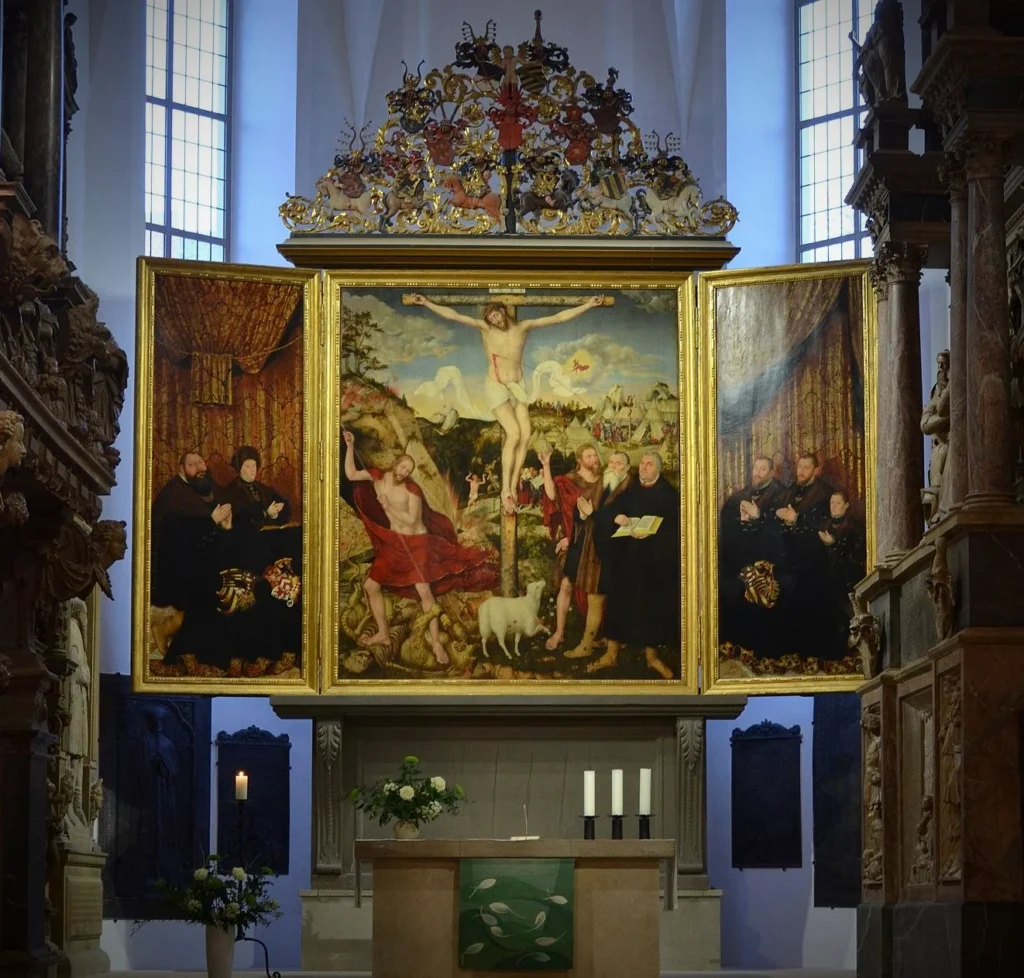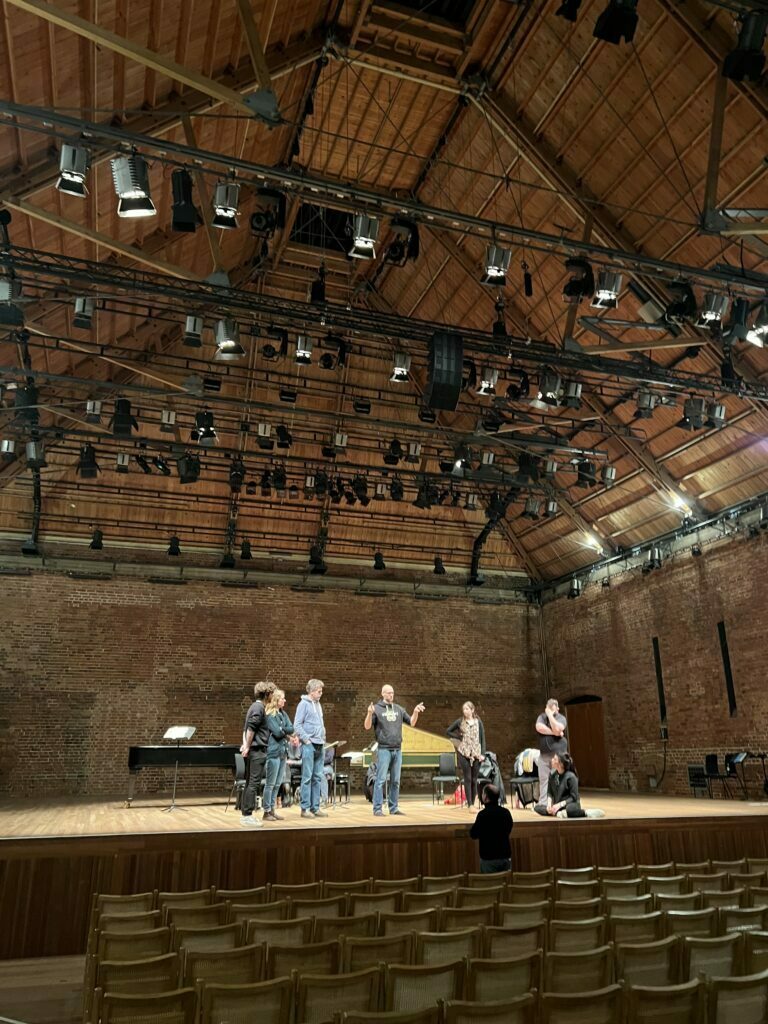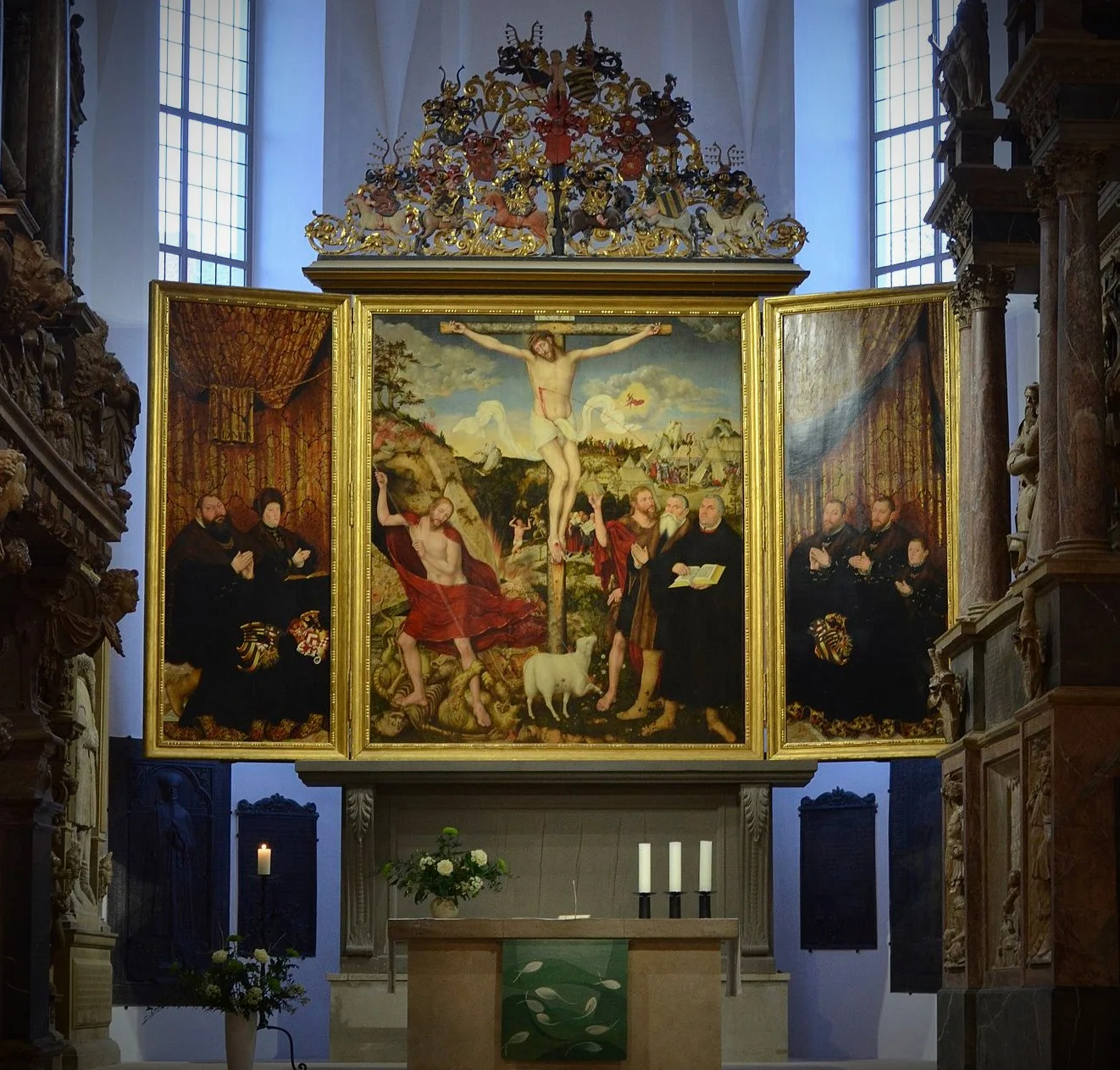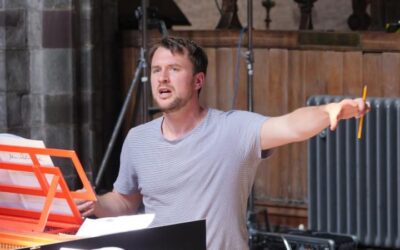“The Passion of Christ should not be acted out in words and pretence, but in real life.”
Martin Luther
Widely regarded as one of Western culture’s greatest achievements, Bach’s St Matthew Passion can nonetheless seem difficult to grasp. This is partly a question of scale, but also because his masterpiece presents the familiar story of Christ’s suffering through such an unfamiliar lens.

St Matthew’s devastating account of betrayal, crucifixion and death is narrated verbatim from the gospel. However, Bach and his librettist, Picander, weave into this sequence multiple threads of commentary that are steeped in 18th-century Lutheranism; here, the literary imagery may elude other audiences and congregations, even with preparation and study. Further, Bach sets this tapestry of texts with such a dazzling array of musical invention — from simple recitative and humble hymns to expansive quasi-operatic arias and epic double-chorus-double-orchestra movements — as might leave listeners of any age quite stunned.
The desire to explore such a fascinating and enigmatic composition from a dramatic perspective is unsurprising and, at face value, the piece follows the traditional narrative structure of a well-made play. It establishes the premise that humanity needs salvation, sets up that Jesus must die horribly in exchange, and that the Pharisees want rid of him; Judas’s bargain then incites a series of complications and confrontations which lead accordingly to a crisis and resolution. As a narrated story, it is heartrending, vivid and intensely shocking, but St Matthew Passion is still no dramatic oratorio, and Bach conceived it according to his own, very different set of rules.
Unexpectedly, perhaps, the biblical characters do not seem to be Bach’s primary focus. Their words are always framed as reported speech, and the distribution of roles indicates only a superficial interest in dramatic identity. Writing for two choirs of four solo voices, Bach had his singers regularly switch parts and sometimes take both sides in a conversation. Even Christ’s words, to which Bach assigns very special musical treatment, were uttered by a singer who also asked Jesus questions, demanded his crucifixion and sang an aria after his death.
By contrast, Bach devotes the lion’s share of his efforts to the non-gospel texts, through which he explores the psychological effects of Christ’s suffering on those present. Reacting in the first person, the storytellers undergo a parallel Aristotelian journey of self-discovery, as they come to terms with our collective responsibility for Jesus’ humiliation and agonising death. While chorales focus on personal faith and communal guilt, arias with an endless variety of orchestral accompaniment struggle with all aspects of human frailty, and the great choruses surround the narrative with extended expressions of profound mutual understanding.

This frame to the story is the dramatic heart of St Matthew Passion and imbues it with a deep sense of the human condition, as the singers, instrumentalists and, by extension, the public reflect on its complex web of meanings and emotions in the context of their own lives. Liberated from an exclusively religious perspective, our participation in a man’s tortuous self-sacrifice through the ecstasy of Bach’s music evokes empathy and introspection, as a universal and, perhaps, the greatest tale of suffering and hope ever told.
John La Bouchardière, March 2023
Reproduced with permission from johnlabouchardiere.com





